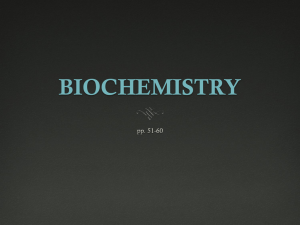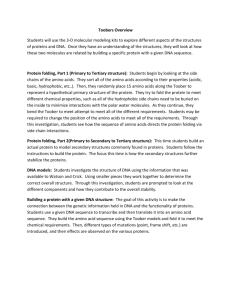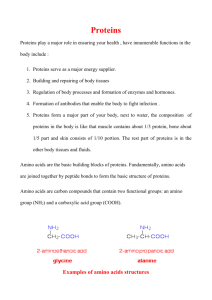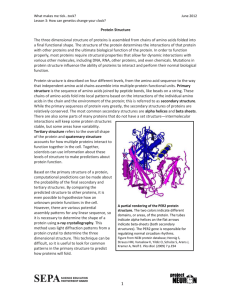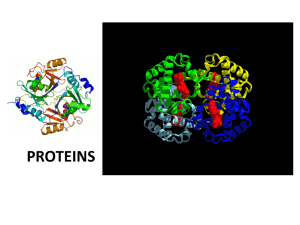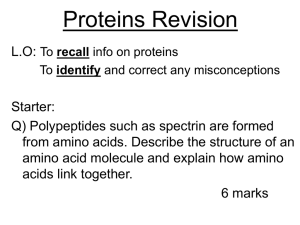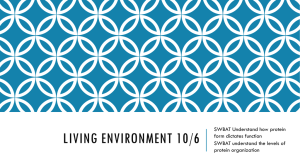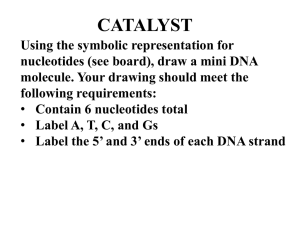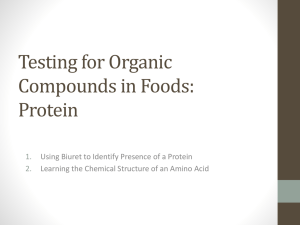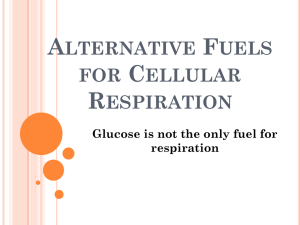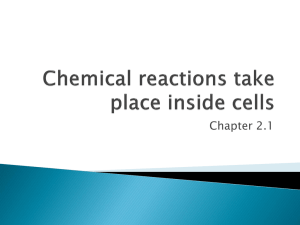Protein Structure
advertisement
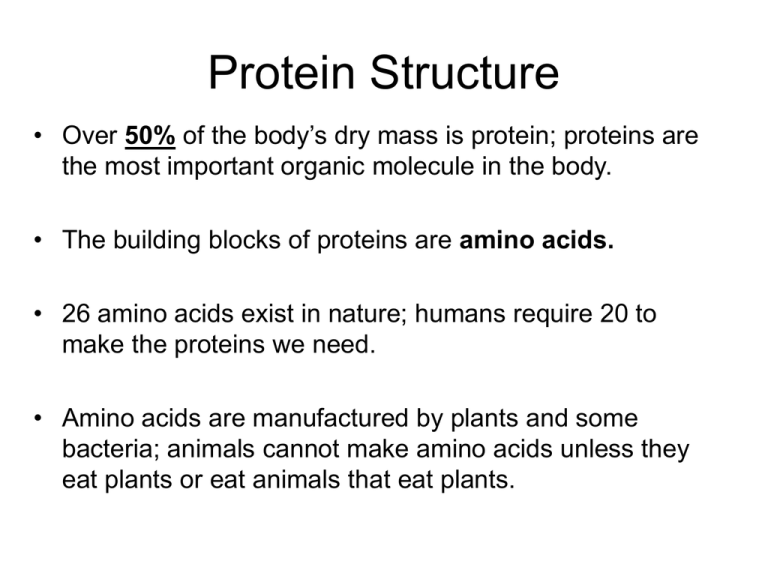
Protein Structure • Over 50% of the body’s dry mass is protein; proteins are the most important organic molecule in the body. • The building blocks of proteins are amino acids. • 26 amino acids exist in nature; humans require 20 to make the proteins we need. • Amino acids are manufactured by plants and some bacteria; animals cannot make amino acids unless they eat plants or eat animals that eat plants. Function of Proteins • Proteins function as: – Regulatory: Enzymes and hormones are proteins..(control the rate of all metabolic reactions; either anabolic or catabolic). – Structural protein; muscle fibers, connective tissue, hair and tendons are all composed of protein. Basic Structure of an Amino Acid All amino acids contain an amino group and a Carboxylic acid group; these functional groups are “sticky,” that is, they are charged and can form bonds with each other. Here are the structures of the 20 amino acids needed by the body; Note the pink highlighted areas are the same amongst all of the acids; these are the carboxylic acid and amino groups. Joining Amino Acids to Form a Peptide Bond Peptide Bond Continued… Peptide Bond Animations http://student.ccbcmd.edu/~gkaiser/biotutorials/proteins/peptide.html http://www.johnkyrk.com/aminoacid.html http://www.stolaf.edu/people/giannini/flashanimat/proteins/protein%20structure.swf Protein folding http://intro.bio.umb.edu/111-112/111F98Lect/folding.html Protein folding http://www.sumanasinc.com/webcontent/animations/content/proteinstructure.html Protein denaturature egg whites MILK PROTEIN: “Curds” and “Whey” • Milk contains two major proteins: – “casein” found in the curds (cheese) – “whey” found in the liquid left over after cheese is made MILK PROTEINS..structure of milk • Milk is a colloid, that is, a mixture of two or more substances that will separate over time due to large particle size. Casein protein is an Emulsifier, that is, the casein molecule contains both a polar (charged) section and a nonpolar (uncharged) section making the casein molecule both hydrophillic and hydrophobic. http://members.ift.org/NR/rdonlyres/A0BC8635-4EE24CD7-8928-55E310DC228C/0/fc3std.pdf

